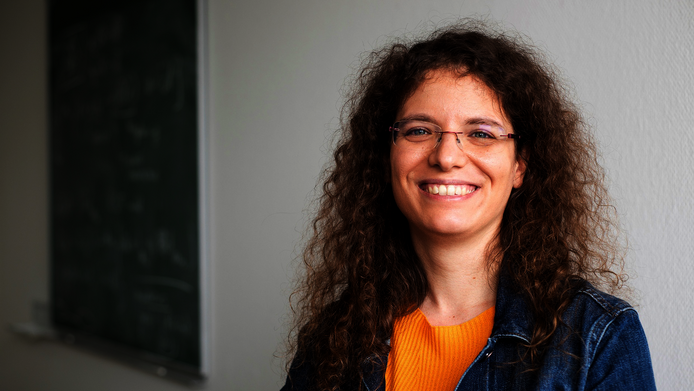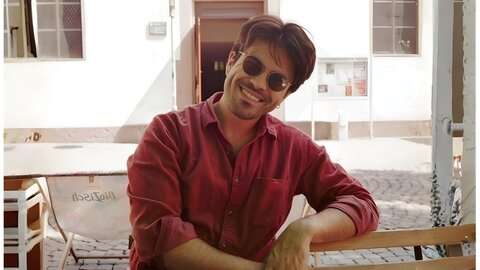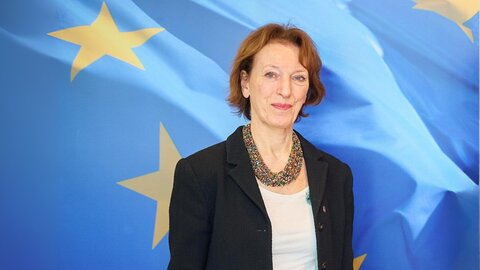Smart materials for the next generation

FWF: What answers do you expect your project to provide as regards smart materials? Elisa Davoli: My project aims at developing a comprehensive theory for the mathematical modelling of smart materials. Known also as metamaterials, these artificial composites can adapt their mechanical, magnetic or electrical response to the characteristics of their environment by going through appropriately induced phase transitions, e.g. softening, hardening or changes in their crystalline structure. This responsiveness of smart materials makes them appropriate for an extremely wide range of applications, from 4D printing to intelligent buildings whose insulation capacity can be adapted to the effects of climate change, to next-generation optical recording and clothing. FWF: What are the first steps? Davoli: The very first step is the observation that many characteristics in the behaviour of these materials can be described by means of a series of minimization processes that may evolve over time. We will start with simplified models and proceed in steps of increasing complexity to address three fundamental questions in the mathematical modelling of smart materials. First, in what way is the effective response of a smart material influenced by the geometric distribution of its components? Second, how do non-local effects interact with time-evolving phase transitions and with the possible onset of microstructure? And third: how do the chiral properties of an active composite material interact with its overall macroscopic tunability?
FWF: What does the START prize mean for your research activities? Davoli: The START prize is an incredible opportunity for my research work. First of all, it gives me the opportunity to strengthen my research network, to enlarge my research group, to plan its scientific activities against a time horizon of six years and to coordinate a newly developed research team with an extremely international outlook. Cooperation partners come from the USA, Czech Republic, the Netherlands, Saudi Arabia, Germany, Italy and Vienna. On the other hand, the award will enable me to embark on completely new research routes in the mathematical modelling of metamaterials and to advance research in this field a few steps more. FWF: What motivates you in your everyday research? Davoli: Curiosity is my strongest motivating force for doing research in mathematics. I am keen to understand how things really work, what theories are hidden behind the visible world and how we can describe them in an elegant and precise way. I am incredibly lucky to have a job that I really enjoy. For me it is fun and also exciting to explore challenging problems. It's a task that never gets boring. FWF: How did you come to specialise in smart materials? Did you have role models for choosing your career? Davoli: From very early on, I have admired the beauty and elegance of mathematics and I have always been fascinated by the complexity of problems in physics, engineering and materials science. So it was a very natural choice for me to go into the field of applied mathematics. I was born in Ancona, and while there were no role models in my family regarding a career in mathematics, one of my teachers encouraged and supported me as of the age of seven. During my studies I was lucky to have three very different but equally inspiring mentors who have made me the mathematician I am today: Maria Giovanna Mora, who supervised my doctorate at the SISSA in Triest, Ulisse Stefanelli from the Faculty of Mathematics at the University of Vienna and Irene Fonseca, my mentor in the USA.
Elisa Davoli is a researcher at the Institute of Analysis and Scientific Computing at TU Wien (Vienna University of Technology). An FWF Elise-Richter Fellow since 2020, she heads the research group “Multiscale Calculus of Variations and PDEs”. Davoli graduated with distinction in mathematics at the SISSA in Triest and acquired the venia docendi in 2019 at the University of Vienna after completing several research stays, including at the Carnegie Mellon University in Pittsburgh, USA. In 2019 she became a member of the Young Academy of the Austrian Academy of Sciences. She is also a winner of the 2020 Richard-von-Mises-Award.
About the project Tunable (or smart) materials are a special class of metamaterials that can adapt their response to the characteristics of their environment. Because of this responsiveness they are considered to be the future of optical data processing, quantum information and next-generation technologies. The START project “Tunable Materials: Geometry, Nonlocality, Chirality" aims to explore fundamental questions about the geometry of the material, its interaction with non-local effects and its macroscopic tunability.
The START Prize The START programme of the Austrian Science Fund FWF is aimed at outstanding young researchers, giving them the opportunity to plan their research over an extended period and with a high degree of financial security. It is endowed with up to EUR 1.2 million and is one of Austria's most prestigious and most highly endowed awards alongside the Wittgenstein Award.





